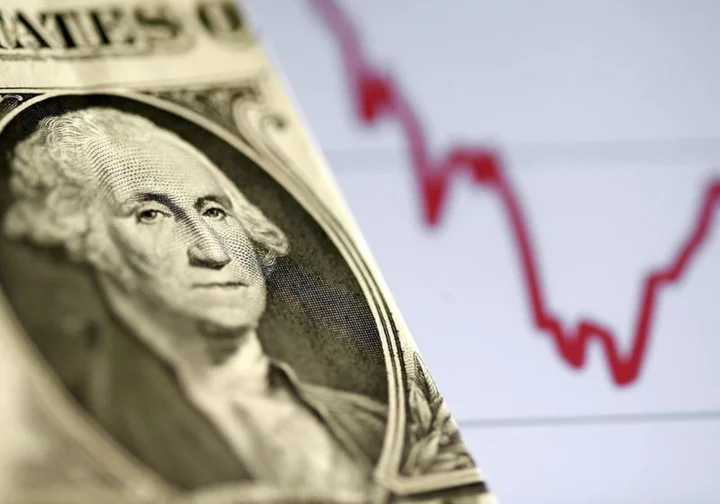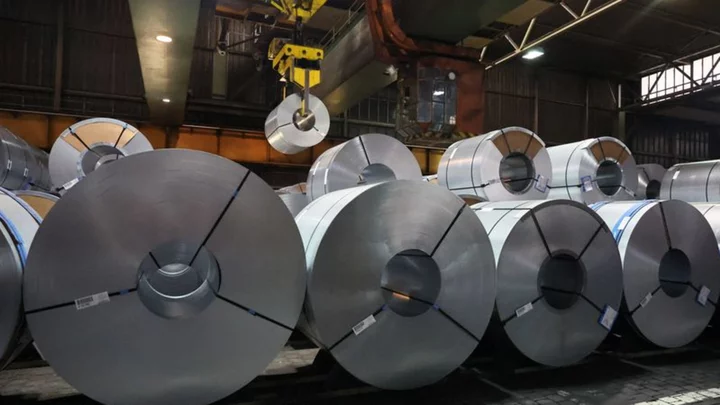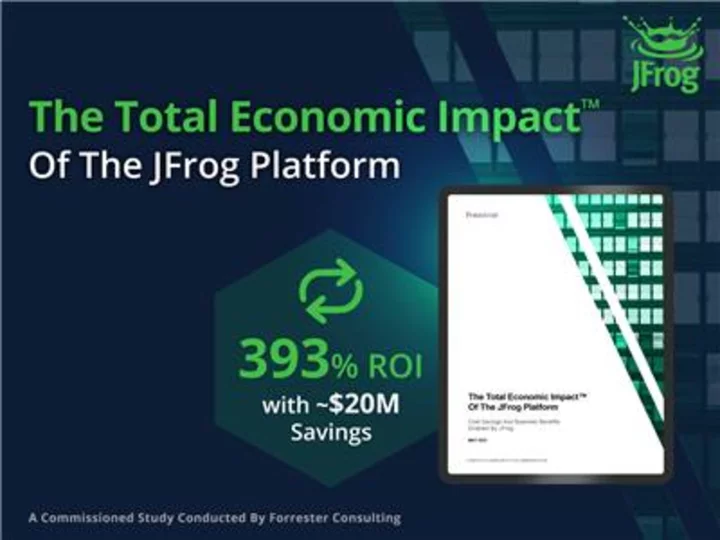By Davide Barbuscia and David Randall
NEW YORK U.S. bond investors were gauging how to navigate a prolonged period of higher interest rates that some expect to weigh on U.S. growth, after the Federal Reserve on Wednesday left open the possibility of more rate increases and excluded easing financial conditions anytime soon.
With its latest 25 basis point interest rate increase now in the books, the Fed has raised the benchmark overnight interest rate by 525 basis points since March 2022 to a level last seen before the 2007 housing market crash in a fight to bring down inflation.
Cooling consumer prices and a resilient economy have sparked rallies in stocks this year and Fed Chairman Jerome Powell on Wednesday said a recession is unlikely - a sharp reversal from the mood earlier this year, when both the Fed and investors believed a downturn was all but unavoidable.
Still, some fixed income investors have remained on edge over how long the Fed can keep interest rates at restrictive levels without sparking an economic downturn. Timing such a shift is important in part because a weaker economy would, in theory, cause the Fed to cut rates, weigh on the high yields many have enjoyed this year and spark a rally in bond prices.
"Investors remain divided on whether this marks the last increase in the current tightening campaign," said Gurpreet Gill, global fixed income macro strategist at Goldman Sachs Asset Management. "Given the uncertainty around when the Fed’s hiking cycle will conclude, we have limited exposure to US rates."
Goldman Sachs recently put the probability of a recession in the next 12 months at 20%, below previous estimates. Barclays has pushed back to next year the mild recession it had forecast for the last quarter of this year.
Powell, meanwhile, said the central bank's staff no longer forecasts a U.S. recession, and "we do have a shot" for inflation to return to target without high levels of job losses.
Nevertheless, some of the world’s biggest bond managers aren't taking chances.
BlackRock, the world’s largest asset manager, is among those advising investors to lock in elevated yields now, in case the Fed may have to cut borrowing costs next year if an economic downturn hits.
Kristy Akullian, a senior strategist with the firm’s iShares Investment Strategy team, said it was time to extend duration - or the sensitivity of an investment portfolio to interest rates - even though additional rate hikes remained possible.
“It's too soon to declare victory on inflation, and I think there are still questions around the health of the economy,” she said. "I think it pays to be a little early for this trade rather than a little bit late.”
HEDGING BETS
The S&P 500 on Wednesday ended little changed following the latest Fed hike. The index is up 19% year-to-date.
Treasury yields, which move inversely to prices, slid on Wednesday. Meanwhile, Fed funds futures traders saw increased probability of another interest rate increase in September.
Adam Hetts, global head of multi-asset at Janus Henderson Investors, is turning more defensive in his portfolios by focusing on high quality equities and core bonds in anticipation of a shallow recession he believes will hit in the next year.
"They may be done turning the vise but we have to realize that the vise will remain tight for some time," he said.
Mike Sanders, head of fixed income at Madison Investments, said he preferred short-term bonds because he expected interest rates to remain higher for longer than market expectations, but he was also adding exposure to longer-term paper to hedge his position.
"We have begun to layer in some long-term bonds in portfolios to hedge against an unexpected economic slowdown while locking in higher rates relative to history," he said. Long-term bonds tend to perform well during economic slowdowns because when central banks ease rates to stimulate demand existing fixed-rate securities are worth more.
To be sure, investors had badly overestimated the chances for recession at the beginning of this year and could be wrong again. Over the past year the unemployment rate has remained stubbornly low and growth has run consistently above trend.
Others, however, have pointed to signs such as the inversion of the Treasury yield curve, which has historically been a reliable indicator of a coming downturn.
"The Fed does keep stressing that they're willing to risk a little bit of economic activity in order to make sure they've got inflation on a strong footing again," said Blair Shwedo, head of investment grade trading at U.S. Bank. "I think the market has had a lot of trouble discounting those statements."
(Reporting by Davide Barbuscia and David Randall; Editing by Ira Iosebashvili and Muralikumar Anantharaman)









